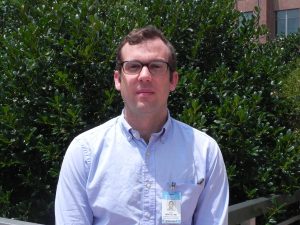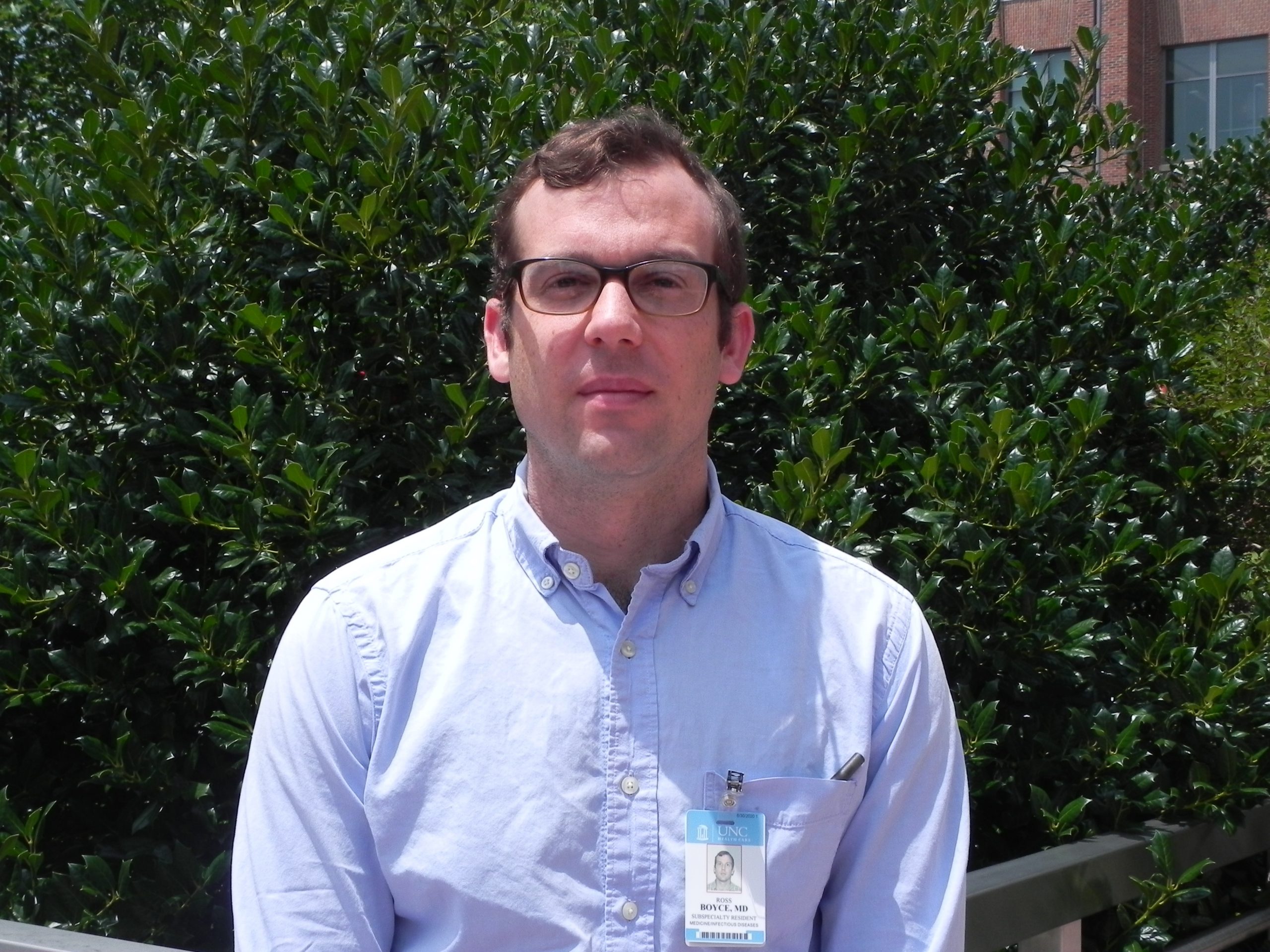Ross Boyce, MD, MSc, a clinical instructor in the division of infectious diseases, has been awarded a nearly $1-million Career Development Award (K23) from the National Institutes of Health to utilize principles from criminology to map mosquito breeding sites in Western Uganda. The project could increase the efficiency of vector control in the region.

Ross Boyce, MD, MSc, a clinical instructor in the division of infectious diseases, has been awarded a nearly $1-million Career Development Award (K23) from the National Institutes of Health to utilize principles from criminology to map mosquito breeding sites in Western Uganda. The project could increase the efficiency of vector control in the region.

Media contact: Jamie Williams, 984-974-1149, jamie.williams@unchealth.unc.edu
November 29, 2018
CHAPEL HILL, NC – Ross Boyce, MD, MSc, a clinical instructor in the division of infectious diseases at the UNC School of Medicine, has been awarded a nearly $1-million Career Development Award (K23) from the National Institutes of Health for an innovative project that will utilize principles from criminology to map mosquito breeding sites in Western Uganda. The project, Boyce said, could increase the efficiency of vector control in the region.
Over the past two decades, the widespread deployment of interventions such as bed nets have significantly reduced the global impact of malaria. But due to a number of issues including insecticide resistance, progress against malaria has stalled and new interventions are needed. Larval source management – the process of treating aquatic habitats that serve as mosquito breeding grounds – has been effective as a control measure for the disease. But because of the high cost of the intervention and difficult, expansive terrain in Sub-Saharan Africa, larval source management is not widely deployed there.
Boyce will utilize geographic profiling — a technique with roots in criminology — to map malaria cases in Western Uganda, setting the stage for the targeted deployment of larvicides against mosquito breeding sites. In the field of criminology, geographic profiling helps law enforcement map locations of serious crimes to narrow the search area for perpetrators because many crimes are carried out in relatively close proximity to the offender’s residence – a concept known as “distance decay.” In the case of malaria, Boyce will utilize a similar practice to map confirmed cases of malaria to triangulate the locations of mosquito breeding sites.
Then, once the breeding sites are effectively mapped, larval source management can be deployed in a manner that is both precise and cost effective.
Geographic profiling was first adapted to biological problem sets by mathematicians at Queen Mary University of London, who are collaborating on Boyce’s grant. They have retrospectively applied geographic profiling to a small outbreak of malaria occurring in Cairo, Egypt, but Boyce’s study will be the first to use the technique prospectively.
Overall, Boyce is optimistic that the work will allow for the identification of breeding sites without the cost associated with large-scale field operations and lead to the deployment of a proven vector control tool in an area that has yet to benefit from it.
Boyce’s work is based in the Western Highlands of Uganda. He has also worked on projects to determine the efficacy of paid malaria testing and was recently awarded a Grand Challenges Explorations Grant from the Bill and Melinda Gates Foundation to study methods for increasing childhood immunizations in Uganda.
Read more about Boyce and his work here.